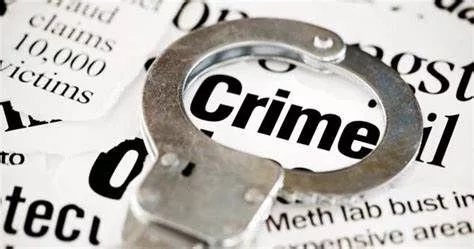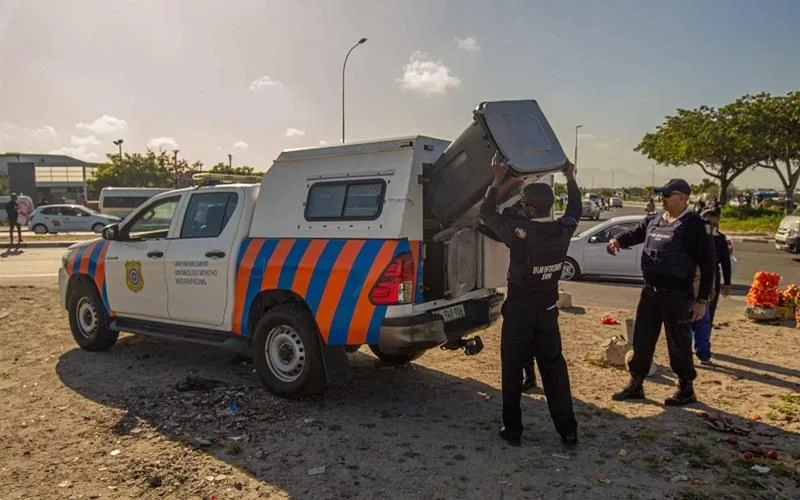Hill-Lewis’s fervent plea underscores the urgent need for action on both fronts to safeguard the lives and livelihoods of Cape Town’s residents. Cape Town’s Mayor, Geordin Hill-Lewis, is calling for action to tackle gang crime and improve the railways in the city. Hill-Lewis demands measures to address the problem of unlicensed guns that fuel gang-related crimes, including enhancing the policing powers of municipal law enforcement officers and curbing corruption in the criminal justice system. He also urges the government to transfer passenger rail services to the metropolitan area to revive the rail system and stimulate the local economy.
What action does Cape Town’s Mayor want against gang crime and railways?
Cape Town’s Mayor, Geordin Hill-Lewis, has demanded incisive measures to tackle the problem of unlicensed guns that intensify gang and drug-related crimes in the city. He also requested clear timelines for the transfer of passenger rail services to the metropolitan area, emphasizing the economic benefits of a rejuvenated rail system. Hill-Lewis believes that enhancing policing powers of municipal law enforcement officers and curbing corruption and inadequacy in the criminal justice system are crucial to fortify the fight against crime.
Cape Town’s Mayor, Geordin Hill-Lewis, has issued a fervent call to President Cyril Ramaphosa. He put forward a demand for incisive measures to tackle the consistent problem of unlicensed guns, a major component in intensifying gang and drug-related crimes within the city and its outskirts. In addition to this, he requested clear-cut timelines for the transfer of passenger rail services to the metropolitan area.
The Evident Crisis
The scenario depicted by Hill-Lewis is grim. Illicit firearms are subtly slipping from police custody into the hands of gang members. This criminal act is further intensified by situations such as the recent theft at Mitchells Plain police station. These unlicensed firearms, now in the possession of gang members, only serve to spread fear among the populace. They become tools of terror, caught in a crossfire that frequently takes innocent lives, and help facilitate the drug trade.
Hill-Lewis believes that the city’s demand for – and execution of – strong measures against corrupt elements inside the SAPS (South African Police Service) colluding with gangs is just a starting point. A swift transfer of additional policing powers to municipal law enforcement is crucial to fortify the fight against crime.
A Battle Against Corruption and Inadequacy
The data vividly illustrate the problem. Over the last two financial years, city police operations have seized 447 illegal firearms, signifying a rising rate of seizures. Arrests related to firearms have also experienced an increase of 35% in 22/23 compared to the preceding year. Alongside these statistics, the city’s investment in law enforcement has seen the annual drug arrests double from 4,000 in 21/22 to more than 8,000 in 22/23. Operations conducted by the city during this period have resulted in the seizure of approximately 124,000 drug units.
However, as Hill-Lewis expresses regretfully, despite the city’s concerted efforts, numerous confiscated firearms find their way back to the streets via corrupt SAPS channels. The criminal justice system’s insufficient response, reflected in the single-digit conviction rates for gang-related crime, intensifies the problem.
Hill-Lewis envisages a broader role for the city’s adept municipal law enforcement officers as steadfast allies of the SAPS. Enhanced policing powers, particularly in criminal investigations, would pave the way for the creation of prosecution-ready case files on gang, gun, and drug crime. The Mayor has appealed for the extension of additional peace officer powers to municipal officers, who could significantly aid the SAPS’s crime-fighting efforts.
The Imperative of Rail Devolution
Alongside the plea for enhanced crime-fighting efforts, Hill-Lewis has underscored the need for an immediate devolution of passenger rail services. The President had previously committed to having the national Rail Devolution Strategy in place by the end of 2023, but no updates have been provided.
The city’s current rail feasibility study offers an economic rationale for the prompt devolution of rail services. Families with lower income in the city could save an estimated R932 million annually with functional, efficient trains. A rejuvenated rail system could also sustain more than 51,000 jobs and contribute R11 billion annually to the local economy.
Given these findings, Hill-Lewis is adamant about the need for definite deadlines for the national Rail Devolution Strategy and the transfer of passenger rail services in Cape Town. According to Hill-Lewis, the city is ready to work with the national government to accelerate the devolution, resulting in benefits for commuters.
Through Mayor Geordin Hill-Lewis’s powerful combination of storytelling and data analysis, the urgency of action on two fronts – curbing gang and drug crime, and devolving passenger rails – is highlighted. These issues, as deeply interconnected with the daily lives and future prospects of Cape Town’s residents as they are, compel immediate and definitive action. Whether the plea will be answered remains to be seen.
How do illicit firearms contribute to gang and drug-related crimes in Cape Town?
Illicit firearms have become a major component of intensifying gang and drug-related crimes in Cape Town. These unlicensed firearms are subtly slipping from police custody into the hands of gang members, making them tools of terror that frequently take innocent lives and facilitate the drug trade. The problem is further intensified by situations such as theft at Mitchells Plain police station.
What measures does Cape Town’s Mayor suggest to address the problem of unlicensed guns?
Cape Town’s Mayor, Geordin Hill-Lewis, suggests enhancing the policing powers of municipal law enforcement officers and curbing corruption in the criminal justice system. He believes that the city’s demand for – and execution of – strong measures against corrupt elements inside the SAPS colluding with gangs is just a starting point. A swift transfer of additional policing powers to municipal law enforcement is crucial to fortify the fight against crime.
What are the statistics related to city police operations against gang and drug-related crimes?
Over the last two financial years, city police operations have seized 447 illegal firearms, signifying a rising rate of seizures. Arrests related to firearms have also experienced an increase of 35% in 22/23 compared to the preceding year. Alongside these statistics, the city’s investment in law enforcement has seen the annual drug arrests double from 4,000 in 21/22 to more than 8,000 in 22/23. Operations conducted by the city during this period have resulted in the seizure of approximately 124,000 drug units.
What is the economic rationale for the devolution of passenger rail services in Cape Town?
According to the current rail feasibility study, families with lower income in the city could save an estimated R932 million annually with functional, efficient trains. A rejuvenated rail system could also sustain more than 51,000 jobs and contribute R11 billion annually to the local economy.
What is the current status of national Rail Devolution Strategy in Cape Town?
The President had previously committed to having the national Rail Devolution Strategy in place by the end of 2023, but no updates have been provided. Hill-Lewis is pressing for definite deadlines for the national Rail Devolution Strategy and the transfer of passenger rail services in Cape Town.
How is the city’s current investment in law enforcement inadequate to curb gang and drug-related crimes?
Despite the city’s concerted efforts, numerous confiscated firearms find their way back to the streets via corrupt SAPS channels. The criminal justice system’s insufficient response, reflected in the single-digit conviction rates for gang-related crime, intensifies the problem. The Mayor has appealed for the extension of additional peace officer powers to municipal officers, who could significantly aid the SAPS’s crime-fighting efforts.












